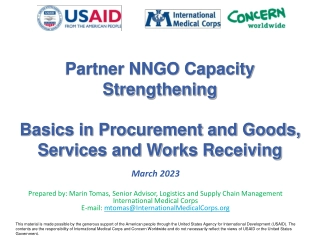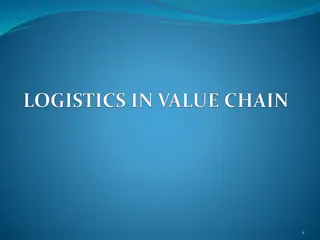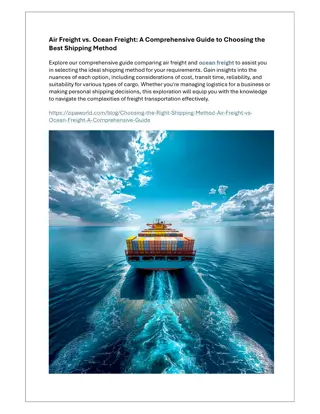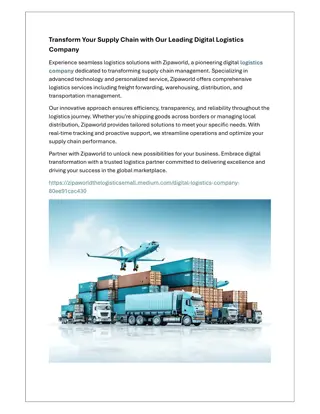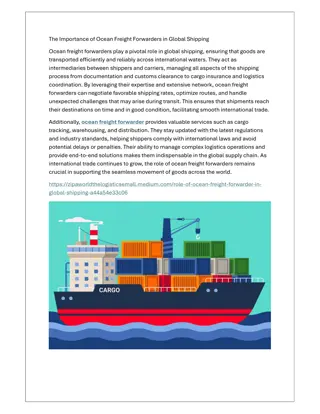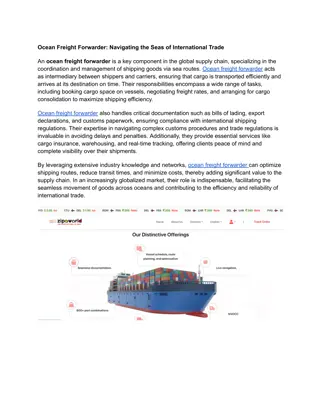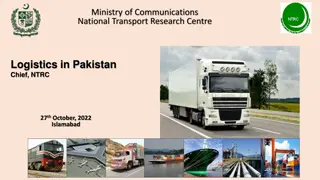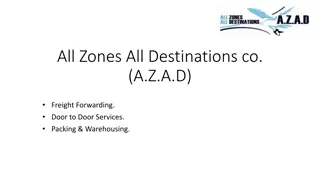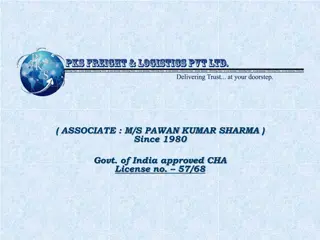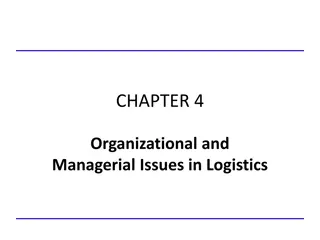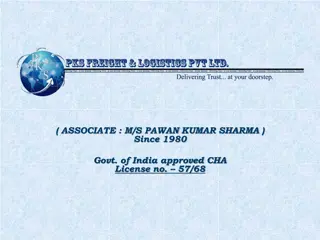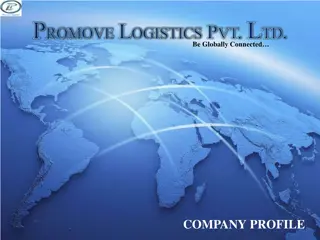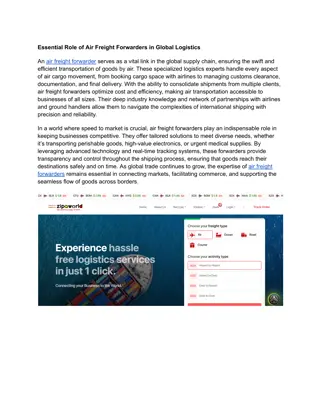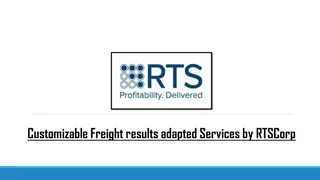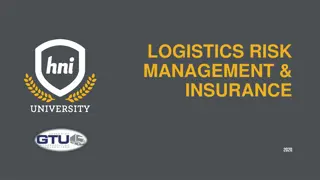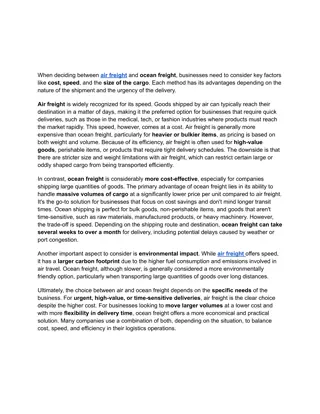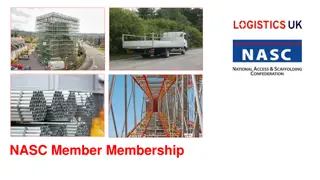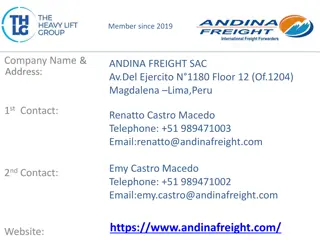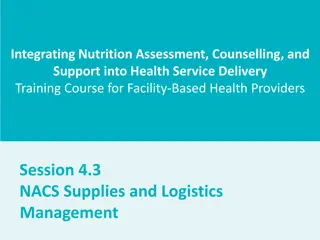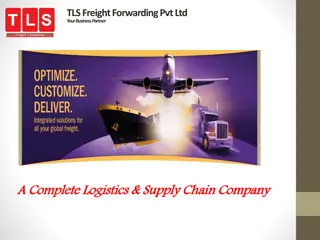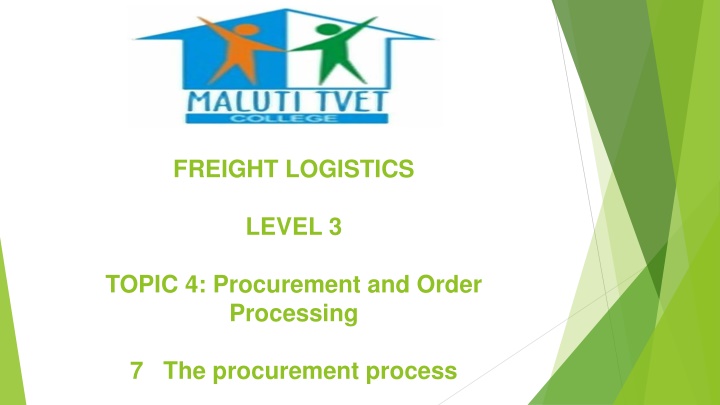
The Tender Process in Freight Logistics
Discover the significance of tenders in procurement, including the invitation process, evaluation criteria, and award considerations. Learn how tenders impact cost reduction, supplier selection, and competitive advantage in the logistics industry.
Download Presentation

Please find below an Image/Link to download the presentation.
The content on the website is provided AS IS for your information and personal use only. It may not be sold, licensed, or shared on other websites without obtaining consent from the author. If you encounter any issues during the download, it is possible that the publisher has removed the file from their server.
You are allowed to download the files provided on this website for personal or commercial use, subject to the condition that they are used lawfully. All files are the property of their respective owners.
The content on the website is provided AS IS for your information and personal use only. It may not be sold, licensed, or shared on other websites without obtaining consent from the author.
E N D
Presentation Transcript
FREIGHT LOGISTICS LEVEL 3 TOPIC 4: Procurement and Order Processing 7 The procurement process
7.2.4 Tender process # Tender: Is to invite bids for a project or accept a formal offer such as takeover bid. # Process: A series of actions or steps taken in order to achieve a particular end. -By using a tender process, several suppliers may all bid to do the same work or provide the same goods and they all receive the same specifications to base their bid or quote on. - The Procurement Department may stipulate the conditions of the tender and may even
Indicate that the lowest price will not necessarily be awarded the tender. However, the aims and scope of the tender must be well defined. -The aim of the tender may be to achieve one or more of the following: # Reduction in costs # Increased capability # Additional capacity # Replacement of a failing supplier # Innovation from the supply market to give competitive advantage to the company.
-Tenders may be awarded based on the supplier s: # Commercial and technical competence # Financial ability and standing # Training expertise (especially when expensive equipment is bought) # Post-sale service contract # Black Economic Empowerment (BEE) status # Perception that the supplier is the best fit for the job or provides the goods that best fit the companies needs
Although differences occur, most tender processes follow the following stages: # Contract strategy # Specification # Communication # Pre-qualification # Invitation to tender # Tender opening # Tender evaluation # Decision of the review pannel
- Contract Strategy # During this stage the tender structure, submission dates, tender requirements and the team who will have responsibility for the evaluation of bids will be considered -Specification # The specification should set out the : Requirements Criteria Specification Rules and guidelines for the goods or service that are being tendered for
# There are two types of specification, namely the: Functional specification describing the functions that the goods and/or services are expected to fulfil Technical specification - Communication # the tender process is intended to provide equal opportunities to all bidders. # Communication should be limited to written information provided to all tenderes
-Prequalification # It is used to limit the number of tenders for a specific requirement # The process ensures that only those tenders who meet specific criteria, and the necessary capabilities, are invited to bid -Invitations to tender # Invitations to tender are usually sent under the sealed bid process. # This means that every bid must be submitted in a sealed envelope or box and will only be opened at the due time, on the due date
Indicated in the Invitation to Tender. # All tenders must then be submitted by that date and time at the least. -Tender opening # The Tender Board may consist of any employees elected within a company and will usually include expert users of the goods or services. # All members need to be present when the tenders are opened.
- Tender evaluation # Firstly, they will ensure that all the bids comply with the tender requirements in terms of prequalification ( where needed), submission adherence, forms and information that had to be submitted. # They also have to ensure that all parts of the tender requirements have been addressed adequately (appropriately). - Decision to the review # when making a final decision, the Tender Board has to consider all the requirements
Set out in the tender documents such as: BEE status Price Specification # As well as aspects such as: Price Quality Timing Cost # Once a decision is made, it is usually final and the Tender Board will not liaise the tenderers about the outcome
# Please complete activity 10 on page 95 any questions or were u need clarity please ask me via watsapp

